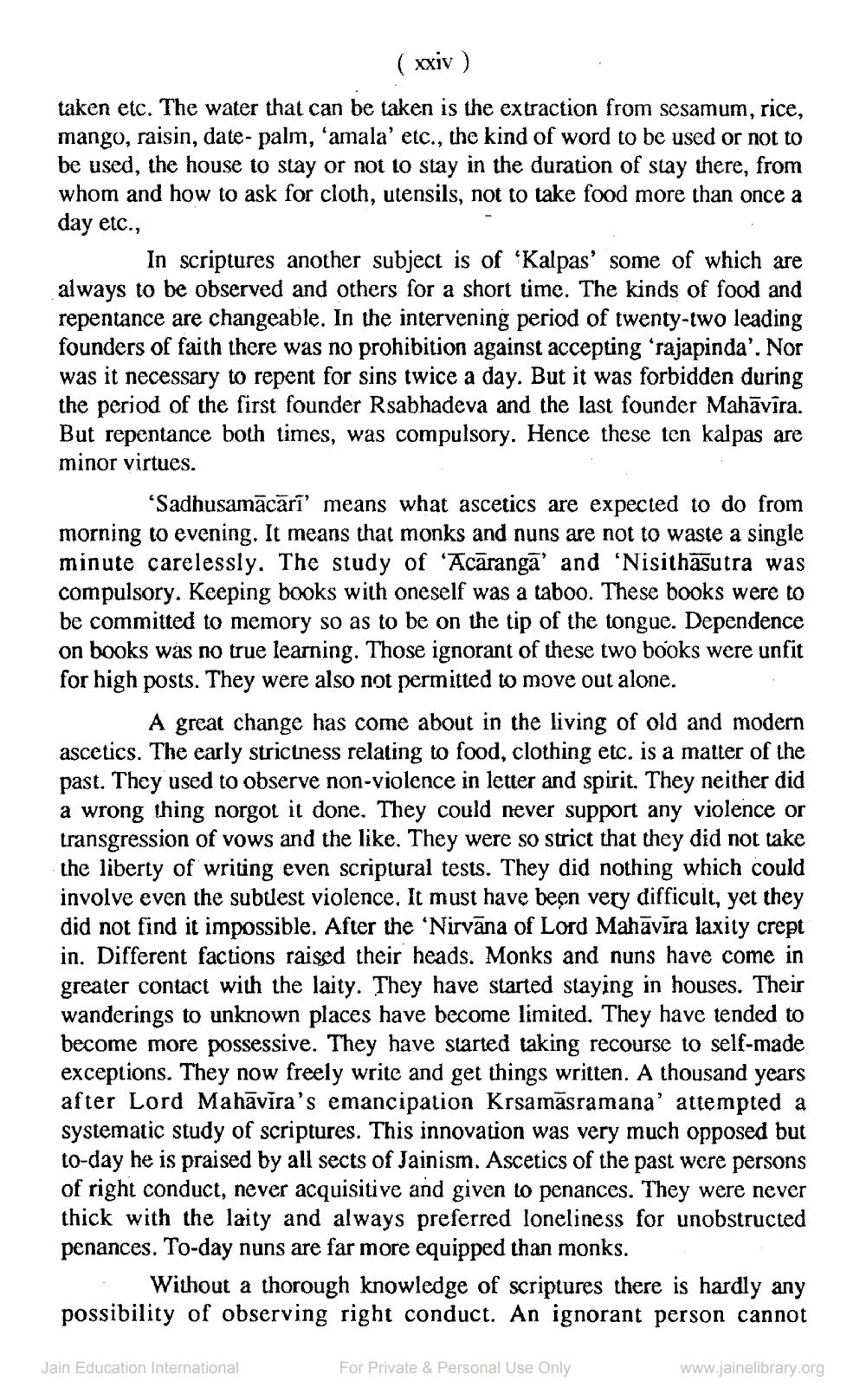________________
( xxiv )
taken etc. The water that can be taken is the extraction from sesamum, rice, mango, raisin, date - palm, 'amala' etc., the kind of word to be used or not to be used, the house to stay or not to stay in the duration of stay there, from whom and how to ask for cloth, utensils, not to take food more than once a day etc.,
In scriptures another subject is of 'Kalpas' some of which are always to be observed and others for a short time. The kinds of food and repentance are changeable. In the intervening period of twenty-two leading founders of faith there was no prohibition against accepting 'rajapinda'. Nor was it necessary to repent for sins twice a day. But it was forbidden during the period of the first founder Rsabhadeva and the last founder Mahāvīra. But repentance both times, was compulsory. Hence these ten kalpas are minor virtues.
'Sadhusamācāri' means what ascetics are expected to do from morning to evening. It means that monks and nuns are not to waste a single minute carelessly. The study of 'Acarangā' and 'Nisithasutra was compulsory. Keeping books with oneself was a taboo. These books were to be committed to memory so as to be on the tip of the tongue. Dependence on books was no true learning. Those ignorant of these two books were unfit for high posts. They were also not permitted to move out alone.
A great change has come about in the living of old and modern ascetics. The early strictness relating to food, clothing etc. is a matter of the past. They used to observe non-violence in letter and spirit. They neither did a wrong thing norgot it done. They could never support any violence or transgression of vows and the like. They were so strict that they did not take the liberty of writing even scriptural tests. They did nothing which could involve even the subtlest violence. It must have been very difficult, yet they did not find it impossible. After the 'Nirvana of Lord Mahāvīra laxity crept in. Different factions raised their heads. Monks and nuns have come in greater contact with the laity. They have started staying in houses. Their wanderings to unknown places have become limited. They have tended to become more possessive. They have started taking recourse to self-made exceptions. They now freely write and get things written. A thousand years after Lord Mahāvīra's emancipation Krsamāsramana' attempted a systematic study of scriptures. This innovation was very much opposed but to-day he is praised by all sects of Jainism. Ascetics of the past were persons of right conduct, never acquisitive and given to penances. They were never thick with the laity and always preferred loneliness for unobstructed penances. To-day nuns are far more equipped than monks.
Without a thorough knowledge of scriptures there is hardly any possibility of observing right conduct. An ignorant person cannot
Jain Education International
For Private & Personal Use Only
www.jainelibrary.org
WW




